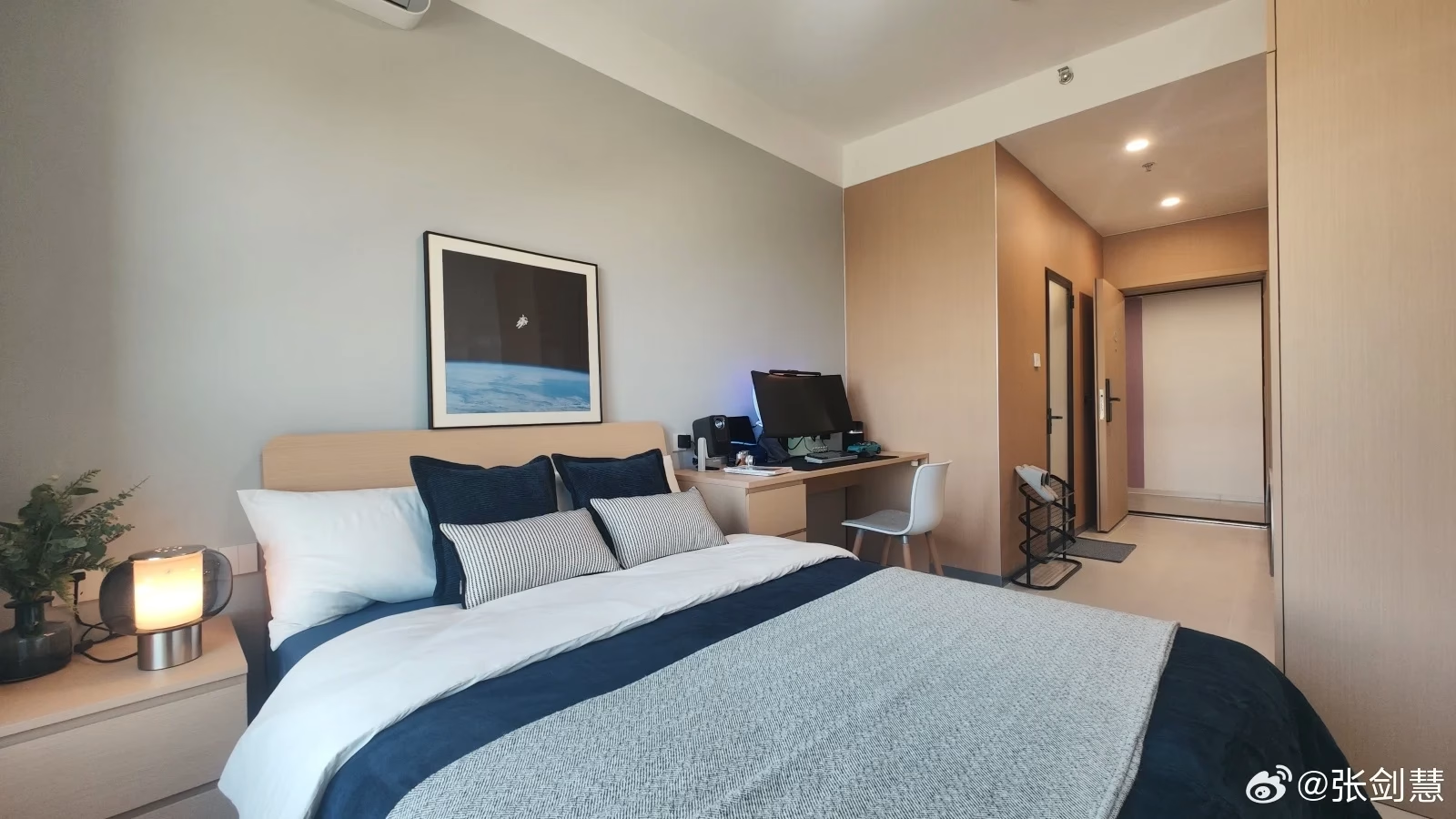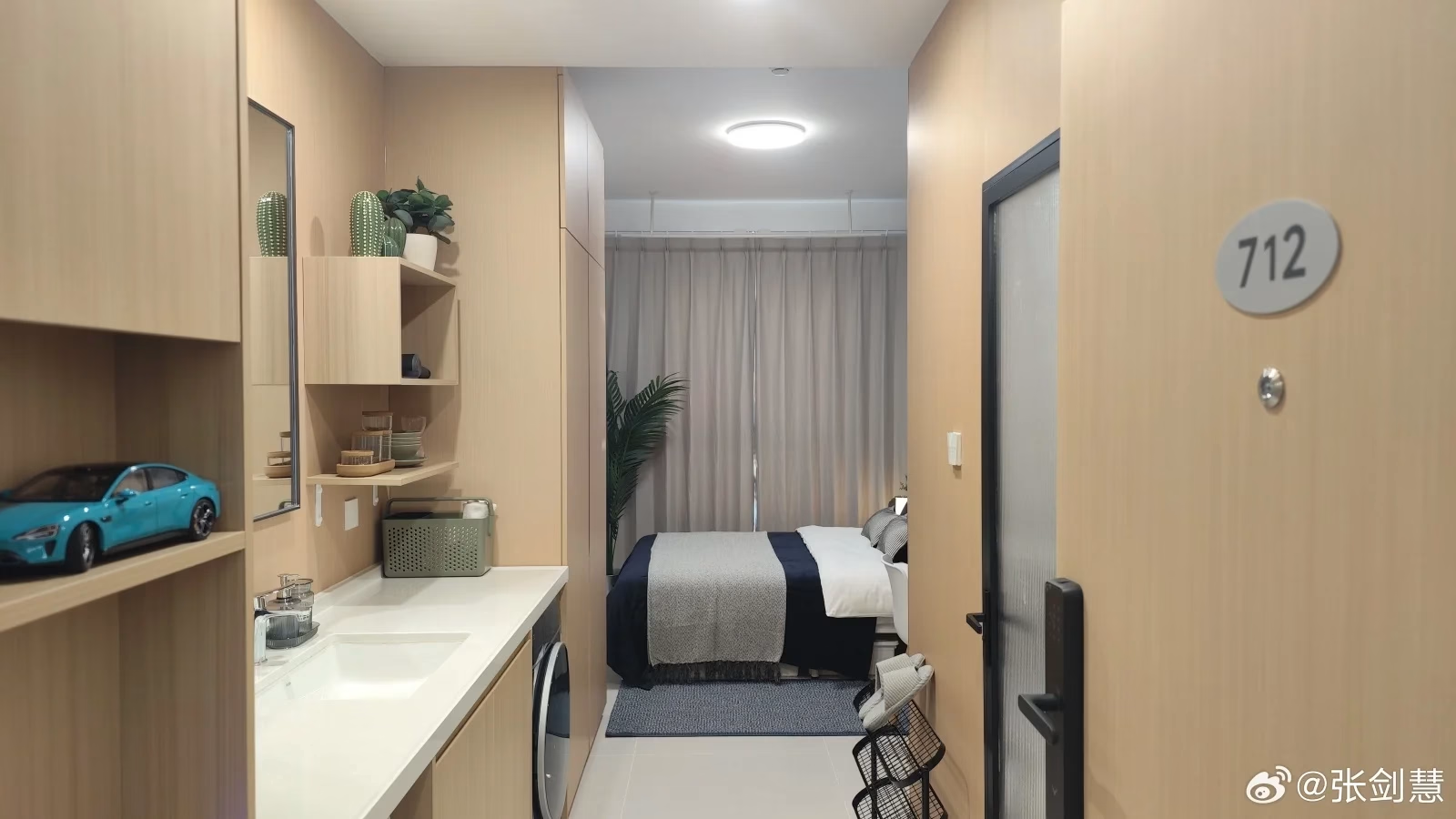Xiaomi's Smart Youth Apartments: A Game Changer for Fresh Graduates?
It's no secret that starting a career in a major city can be incredibly daunting, especially for fresh graduates. The excitement of a new job often clashes head-on with the harsh reality of urban living costs, particularly rent. For years, this has been a significant barrier, pushing young talent to the fringes or even out of the very cities where opportunities abound. But what if a major tech company stepped in to ease that burden, offering not just a job, but also a genuinely affordable, smart living space? Well, that's precisely what Xiaomi seems to be doing, and frankly, it's a fascinating development worth a closer look.

The Xiaomi Apartment Model: What's on Offer?
Xiaomi recently unveiled its smart youth apartments, specifically tailored for fresh graduates, at an astonishingly low monthly rent of just $280 (approximately 1999 yuan). This isn't some abstract concept; these units are already available in two of China's bustling tech hubs: Beijing and Nanjing. It's a concrete, tangible solution to a pervasive problem.
Beijing's Tech Hub Living
In Beijing, the initiative is quite substantial, with over 2,600 units now ready for occupancy. The primary apartment type is a compact yet functional 29-square-meter unit, each thoughtfully equipped with an independent bathroom. Crucially, these aren't just bare-bones spaces. They come integrated with Xiaomi's own smart home features, meaning residents can expect a connected living experience right from day one. Think smart lighting, climate control, maybe even some smart kitchen appliances – all controllable via Xiaomi's ecosystem. The location is strategic too, nestled near Xiaomi's sprawling tech park, and they've even thrown in shuttle bus services to make the daily commute a breeze. It's about convenience, isn't it?
Nanjing's Urban Oasis
Nanjing, another rapidly growing tech city, isn't left out. Here, Xiaomi is offering 566 units. These are a bit different in layout, typically featuring two bedrooms and a living room, suggesting a co-living or shared apartment model, which makes a lot of sense for fresh grads looking to split costs. Their location is equally well-considered, situated near the city's Central Business District (CBD) and within easy walking distance to a metro station. Accessibility is key, and Nanjing's offerings certainly tick that box.
Addressing a Critical Need: Why This Matters for Fresh Graduates
The sheer affordability of these apartments can't be overstated. In cities like Beijing and Nanjing, market-rate rents for even a small studio can easily run several times the $280 Xiaomi is charging. For a fresh graduate, often burdened with student loans and starting on a modest salary, this difference is monumental. It's the difference between scraping by paycheck to paycheck and having some financial breathing room.

This initiative directly tackles one of the biggest pain points for young professionals entering the workforce in high-cost urban centers. It means less stress about rent, more disposable income for essentials or even savings, and ultimately, a better quality of life. Think about it: if you're not constantly worried about making rent, you can focus more on your work, on learning, and on building your career. It's a foundational support system, really. And it's not just about the money. It's about stability, about providing a soft landing in a new, often overwhelming, environment.
Beyond the Rent: Strategic Implications for Xiaomi
While this move is undoubtedly a boon for fresh graduates, it's also a shrewd strategic play for Xiaomi. In the fiercely competitive tech talent market, attracting and retaining top-tier talent is paramount. Offering affordable, high-quality housing isn't just a perk; it's a powerful differentiator.
Talent Attraction and Retention
Fostering a Community
The concentration of these apartments near Xiaomi's tech park in Beijing, coupled with shuttle services, suggests an intent to foster a vibrant, tech-centric community. This isn't just about housing; it's about creating an ecosystem where young professionals can live, work, and socialize, potentially leading to greater collaboration, innovation, and a stronger company culture. It's a bit like a modern-day company town, but with a focus on smart living and convenience.
Broader Industry Trends and Future Outlook
Xiaomi's move isn't entirely isolated. We're seeing a growing trend among major tech companies to invest in employee welfare, with housing solutions emerging as a key area. This reflects a recognition that a stable, comfortable living situation directly impacts productivity and overall employee well-being. It's a shift from merely offering competitive salaries to providing holistic support.
What does this mean for the future? Well, it could set a precedent. If Xiaomi's initiative proves successful in attracting and retaining talent, it wouldn't be surprising to see other tech giants follow suit, especially in markets with high living costs. This could, in turn, have interesting implications for urban development, potentially leading to more integrated work-live communities around major industrial parks. Of course, scaling such initiatives presents its own challenges, but the initial reception, judging by online discussions, seems overwhelmingly positive. Lu Weibing, a partner at Xiaomi Group, even commented that the pricing decision came after extensive internal discussions, underscoring the strategic thought behind it.
Conclusion
Xiaomi's launch of smart youth apartments at an incredibly affordable $280 a month is more than just a generous gesture; it's a strategic investment in its future workforce and a potential game-changer for fresh graduates navigating the complexities of urban life. By directly addressing the critical issue of housing affordability, Xiaomi is not only attracting top talent but also fostering a supportive environment where young professionals can thrive. It's a win-win scenario that could very well inspire a new wave of employee-centric initiatives across the tech industry. And honestly, it's about time companies started thinking outside the box when it comes to supporting their most valuable asset: their people.
